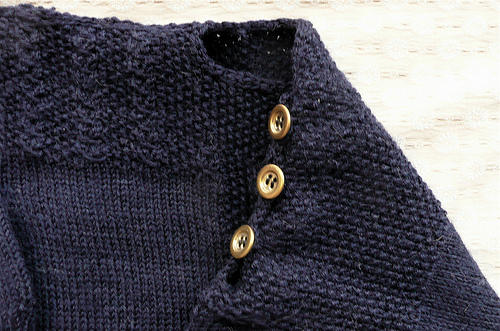Shopping - Lesson 9 - Conversation:
Cambiare della merce
(Exchanging merchandise)
(photo
by AnnaKika used
under terms of Creative Commons license.)

|
Don Smith: |
Mi scusi, Signorina. Ho comprato questo pullover
la settimana scorsa, ma non mi va bene. È troppo largo. |
|
Commessa: |
Vuole cambiarlo o vuole vedere qualcos'altro? |
|
Don Smith: |
Può rimborsarmi? |
|
Commessa: |
Mi dispiace, Signore. La nostra merce non è
rimborsabile. Però posso farLe un credito se vuole. |
|
Don Smith: |
Va bene. |
|
Commessa: |
Ha lo scontrino, per favore? |
|
Don Smith: |
Eccolo, Signorina. Tante grazie. |
Translation:
|
Don Smith: |
Excuse me, miss. I bought this
pullover last week but it doesn't fit me very well. It's too large. |
|
Saleswoman: |
Do you want to exchange it, or
do you want to see something else? |
|
Don Smith: |
Can you give me a refund? |
|
Saleswoman: |
I'm sorry, sir. Our merchandise
is not refundable But I can give you (a) credit if you wish. |
|
Don Smith: |
OK. |
|
Saleswoman: |
Do you have the sales slip,
please? |
|
Don Smith: |
Here it is, miss. Many thanks. |
Notes on conversation
1. La settimana scorsa is "last week." Il mese scorso is "last month." Passato also has the meaning "last." For example, la settimana passata, " last week: " il mese passato, " last month."
2. Ho comprato questo pullover la settimana scorsa. Ho and the past participle of comprare, "to buy," correspond to the English simple past, "I bought," or sometimes to the present perfect, I have bought." This tense is called il passato prossimo. Il passato prossimo expresses an action that took place in the past and is completed by the time you refer to it. Il passato prossimo is formed by using the present tense of avere, "to have," or, with certain verbs, the present tense of essere "to be," followed by the past participle of the verb. In the expression "I have spoken," "spoken" is the past participle.
3. Most Italian shops will exchange merchandise and give credit. With few exceptions, however, do they furnish refunds.
4. Lo la ("it") le, li ("them") are attached to the infinitives that follow "wish," "can," "must," "desire," and "prefer."